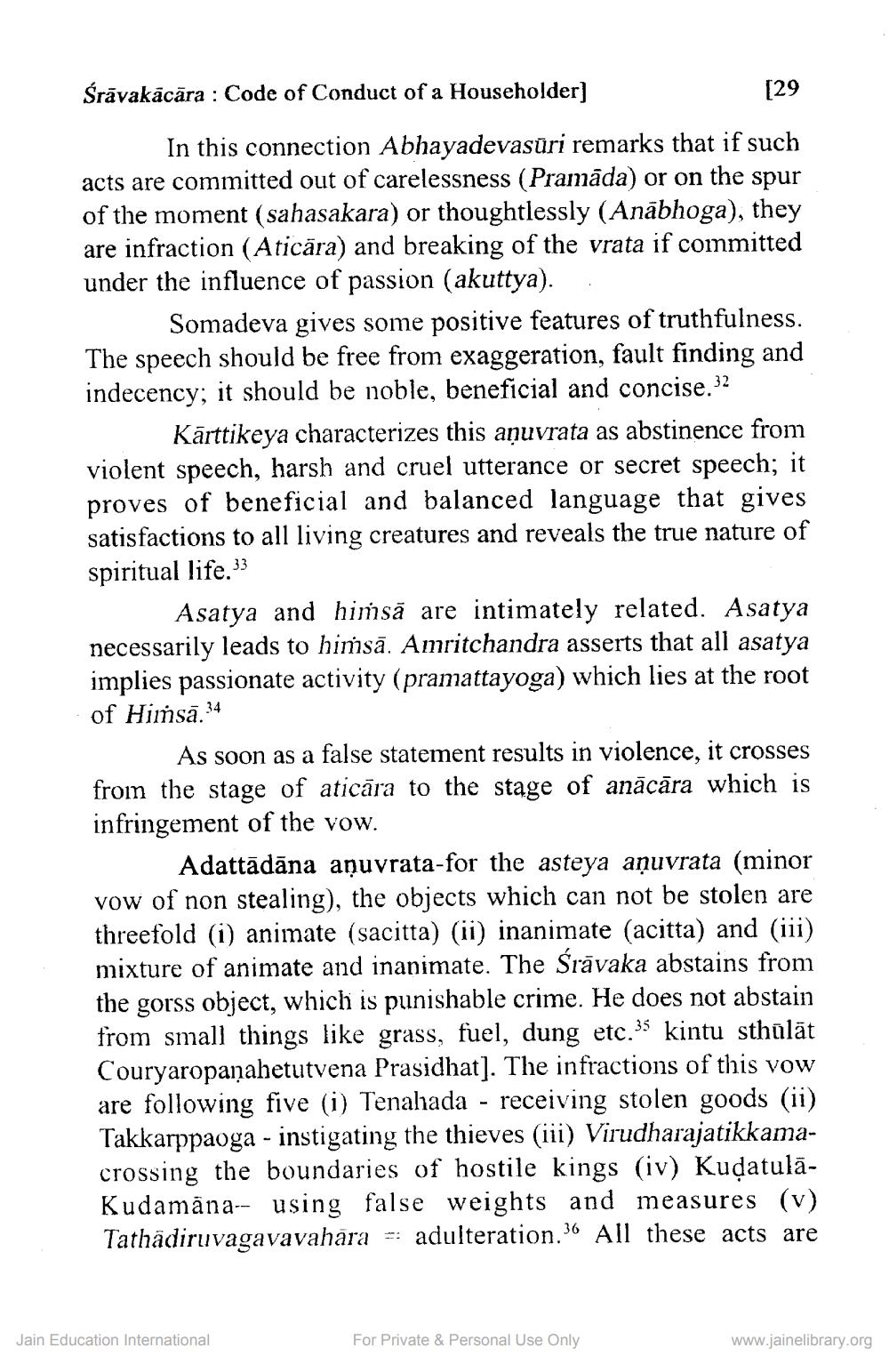________________
Śrāvakācāra : Code of Conduct of a Householder]
[29
In this connection Abhayadevasūri remarks that if such acts are committed out of carelessness (Pramāda) or on the spur of the moment (sahasakara) or thoughtlessly (Anābhoga), they are infraction (Aticāra) and breaking of the vrata if committed under the influence of passion (akuttya).
Somadeva gives some positive features of truthfulness. The speech should be free from exaggeration, fault finding and indecency; it should be noble, beneficial and concise.32
Kārttikeya characterizes this aņuvrata as abstinence from violent speech, harsh and cruel utterance or secret speech; it proves of beneficial and balanced language that gives satisfactions to all living creatures and reveals the true nature of spiritual life.33
Asatya and himsă are intimately related. Asatya necessarily leads to himsă. Amritchandra asserts that all asatya implies passionate activity (pramattayoga) which lies at the root of Hiṁsā.34
As soon as a false statement results in violence, it crosses from the stage of aticāra to the stage of anācāra which is infringement of the vow.
Adattādāna asuvrata-for the asteya aņuvrata (minor vow of non stealing), the objects which can not be stolen are threefold (i) animate (sacitta) (ii) inanimate (acitta) and (iii) mixture of animate and inanimate. The Śrāvaka abstains from the gorss object, which is punishable crime. He does not abstain from small things like grass, fuel, dung etc.35 kintu sthūlāt Couryaropanahetutvena Prasidhat]. The infractions of this vow are following five (i) Tenahada - receiving stolen goods (ii) Takkarppaoga - instigating the thieves (iii) Virudharajatikkamacrossing the boundaries of hostile kings (iv) KudatulāKudamāna-- using false eights and measures (v) Tathadiruvagavavahāra = adulteration.36 All these acts are
Jain Education International
For Private & Personal Use Only
www.jainelibrary.org




